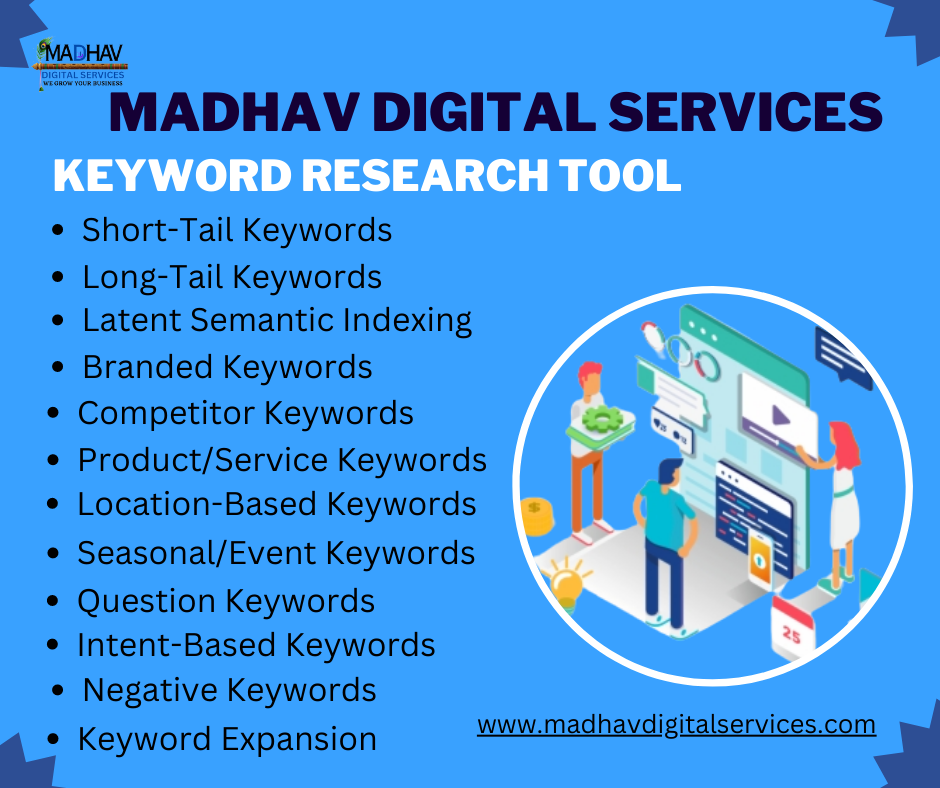
Keyword research is a crucial component of digital marketing, especially for search engine optimization (SEO) and pay-per-click (PPC) advertising. It involves identifying and targeting specific keywords and phrases that potential customers might use when searching online. There are several types of keyword research strategies in digital marketing:
- Short-Tail Keywords: These are short and often generic keywords, usually consisting of one to two words. They have high search volume but can be very competitive. For example, “digital marketing.”
- Long-Tail Keywords: Long-tail keywords are longer and more specific phrases, usually containing three or more words. They have lower search volume but tend to be less competitive and more targeted. For example, “best digital marketing strategies for small businesses.”
- LSI Keywords (Latent Semantic Indexing): These are keywords that are closely related to your main keyword and provide context to search engines about the topic. They help search engines understand the content’s relevance. For example, if your main keyword is “digital camera,” LSI keywords could be “photography,” “camera lenses,” or “photo editing.”
- Branded Keywords: These are keywords that include your brand name or variations of it. They help you establish your brand presence and attract users specifically interested in your products or services. For example, “Nike running shoes.”
- Competitor Keywords: Researching keywords that your competitors are targeting can provide insights into their strategies and help you identify opportunities to compete or differentiate.
- Product/Service Keywords: These keywords directly relate to the products or services you offer. They are crucial for e-commerce sites and businesses focused on specific offerings. For example, “organic skincare products.”
- Location-Based Keywords: If your business has a physical presence or serves specific locations, targeting keywords that include geographic modifiers can help attract local customers. For example, “New York City dentist.”
- Seasonal/Event Keywords: These keywords are relevant only during certain times of the year or in connection with specific events. Incorporating them into your strategy can help capitalize on seasonal trends. For example, “Valentine’s Day gift ideas.”
- Question Keywords: These are keywords that are phrased as questions. With the rise of voice search, targeting question keywords can help you capture voice search traffic. For example, “how to bake a chocolate cake.”
- Intent-Based Keywords: Understanding user intent (e.g., informational, navigational, transactional) and targeting keywords that align with that intent can improve the relevance of your content for users at different stages of the buying journey.
- Negative Keywords (PPC): In PPC advertising, negative keywords are terms you exclude to prevent your ads from showing for irrelevant searches. This helps improve ad targeting and cost-effectiveness.
- Keyword Expansion: Continuously expanding your keyword list through research and analysis helps you discover new opportunities and stay competitive in the ever-changing digital landscape.
Remember, effective keyword research involves a balance between search volume, competition, and relevance to your target audience. Using a combination of these keyword types can help you create a comprehensive and effective keyword strategy for your digital marketing efforts.
